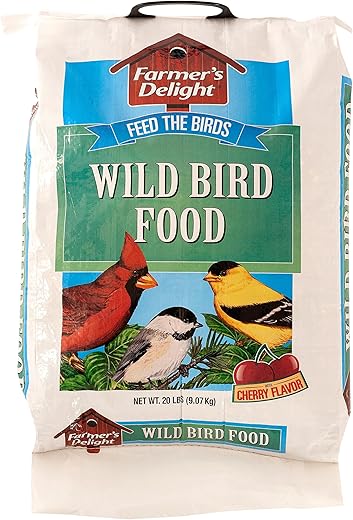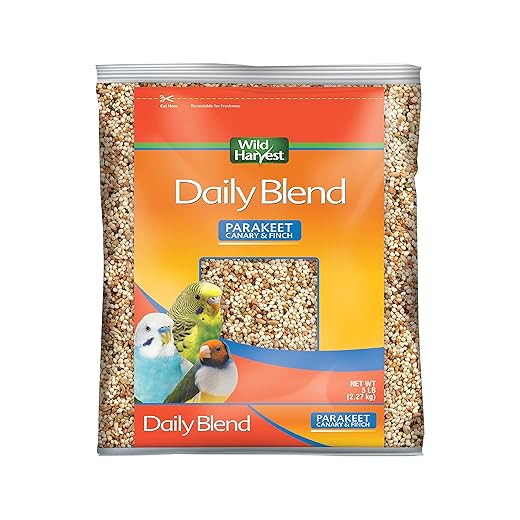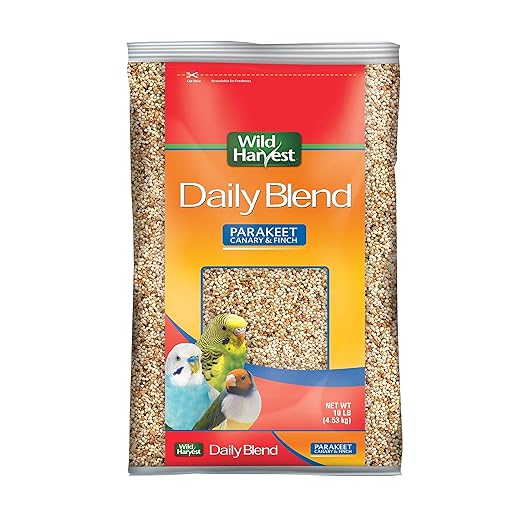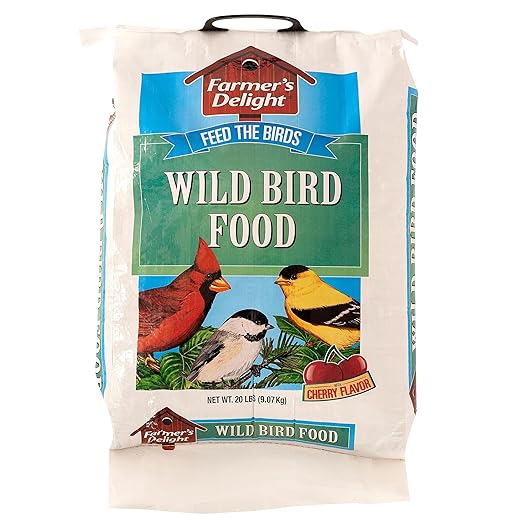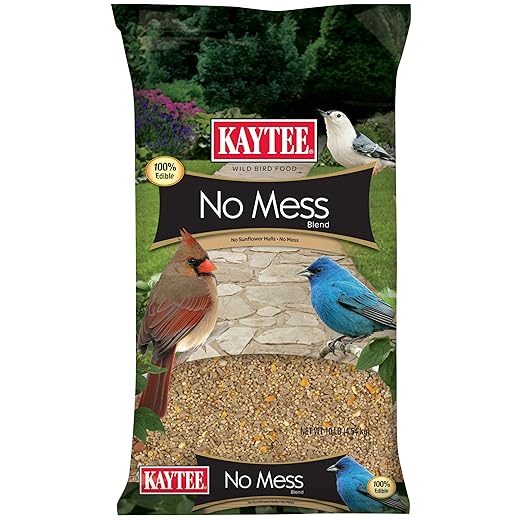More information about Bird Food
Looking to attract more birds to your backyard? Try our premium bird food! Made with high-quality ingredients, our bird food is designed to provide the essential nutrients birds need for optimal health and energy. With a variety of seed blends and mixes available, you can cater to different bird species and their preferences. Whether you want to attract colorful songbirds or majestic woodpeckers, our bird food will have them flocking to your feeders in no time. Create a bird paradise in your own backyard with our top-notch bird food!
Questions about Bird Food
When it comes to attracting specific bird species to your backyard, there are several types of bird food that can help you achieve your goal. One popular option is sunflower seeds, which are loved by a wide variety of birds including cardinals, chickadees, and finches. Another option is nyjer (thistle) seed, which is a favorite of finches, such as goldfinches and purple finches. If you're looking to attract woodpeckers, suet cakes made from rendered animal fat and mixed with seeds or insects are a great choice. Additionally, hummingbirds are attracted to nectar, which can be easily made by mixing four parts water with one part white granulated sugar.
When selecting bird food, it is important to ensure that it is nutritionally balanced and provides the necessary vitamins and minerals for the birds' well-being. One way to do this is by checking the ingredients list on the packaging. Look for a variety of high-quality ingredients such as seeds, nuts, fruits, and vegetables. These ingredients should provide a range of nutrients that birds need. Additionally, consider choosing bird food that is specifically formulated for the type of bird you are feeding. Different bird species have different dietary requirements, so selecting a food that is tailored to their needs can help ensure they are getting the right balance of nutrients. This will help support their overall health and vitality.
When selecting bird food, it is important to be mindful of the ingredients and additives to ensure the health and safety of our feathered friends. One ingredient to avoid is artificial preservatives, such as BHA, BHT, and ethoxyquin, as they can be harmful to birds. Additionally, it is best to steer clear of artificial colors and flavors, as they offer no nutritional value and may be unnecessary for birds. Another additive to be cautious of is excessive salt, as it can be detrimental to a bird's health. It is always recommended to opt for bird food that contains natural, wholesome ingredients, such as seeds and fruits, which provide essential nutrients and mimic a bird's natural diet.
When it comes to storing bird food, there are a few effective strategies to maintain its freshness and prevent spoilage. First, it's important to store the bird food in a cool, dry place away from direct sunlight. This helps to prevent moisture and heat from causing the food to spoil. Additionally, using airtight containers or resealable bags can help to keep the food fresh by preventing exposure to air and moisture. It's also a good idea to check the expiration date on the bird food packaging and rotate the stock to ensure you're using the oldest food first. Lastly, keeping the storage area clean and free of pests is crucial to prevent contamination and maintain the quality of the bird food.
birds? Creating a bird-friendly feeding station in your garden is a wonderful way to attract a variety of birds. Here are some tips to help you set up a welcoming space for our feathered friends. First, choose a location that is easily visible from your home, but also offers some protection from predators. Next, provide a variety of feeders to accommodate different bird species and their feeding preferences. For example, a tube feeder with small perches is great for attracting finches, while a platform feeder with a roof will attract larger birds like cardinals. Additionally, offer a mix of birdseed, suet, and fruit to cater to different dietary needs. Finally, make sure to regularly clean and refill the feeders to maintain a healthy feeding environment. By following these tips, you can create a bird-friendly feeding station that will bring joy and beauty to your garden while supporting our avian friends.
